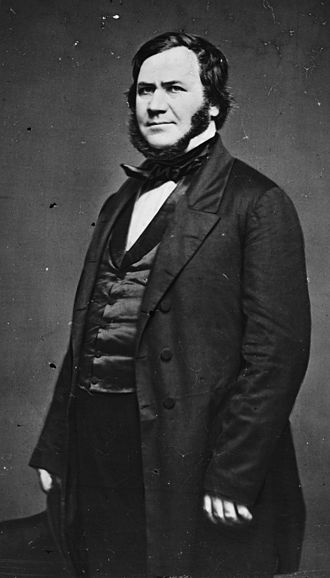Strictly confidential.
Springfield, Ill. Dec 15, 1860.
Hon. John A. Gilmer:
My dear Sir--- Yours of the 10th is received. I am greatly disinclined
to write a letter on the subject embraced in yours; and I would not do
so, even privately as I do, were it not that I fear you might
misconstrue my silence. Is it desired that I shall shift the ground
upon which I have been elected? I can not do it. You need only to
acquaint yourself with that ground, and press it on the attention of
the South. It is all in print and easy of access. May I be pardoned if
I ask whether even you have ever attempted to procure the reading of
the Republican platform, or my speeches, by the Southern people? If
not, what reason have I to expect that any additional production of
mine would meet a better fate? It would make me appear as if I repented
for the crime of having been elected, and was anxious to apologize and
beg forgiveness. To so represent me, would be the principal use made of
any letter I might now thrust upon the public. My old record cannot be
so used; and that is precisely the reason that some new declaration is
so much sought.
Now, my dear sir, be assured, that I am not questioning your candor; I
am only pointing out, that, while a new letter would hurt the cause
which I think a just one, you can quite as well effect every patriotic
object with the old record. Carefully read pages 18, 19, 74, 75, 88,
89, & 267 of the volume of Joint Debates between Senator Douglas
and myself, with the Republican Platform adopted at Chicago, and all
your questions will be substantially answered. I have no thought of
recommending the abolition of slavery in the District of Columbia, nor
the slave trade among the slave states, even on the conditions
indicated; and if I were to make such recommendation, it is quite clear
Congress would not follow it.
As to employing slaves in Arsenals and Dockyards, it is a thing I never
thought of in my life, to my recollection, till I saw your letter; and
I may say of it, precisely as I have said of the two points above.
As to the use of patronage in the slave states, where there are few or
no Republicans, I do not expect to inquire for the politics of the
appointee, or whether he does or not own slaves. I intend in that
matter to accommodate the people in the several localities, if they
themselves will allow me to accommodate them. In one word, I never have
been, am not now, and probably never shall be, in a mood of harassing
the people, either North or South.
On the territorial question, I am inflexible, as you see my position in
the book. On that, there is a difference between you and us; and it is
the only substantial difference. You think slavery is right and ought
to be extended; we think it is wrong and ought to be restricted. For
this, neither has any just occasion to be angry with the other.
As to the state laws, mentioned in your sixth question, I really know
very little of them. I never have read one. If any of them are in
conflict with the fugitive slave clause, or any other part of the
constitution, I certainly should be glad of their repeal; but I could
hardly be justified, as a citizen of Illinois, or as President of the
United States, to recommend the repeal of a statute of Vermont, or
South Carolina.
With the assurance of my highest regards I subscribe myself
Your obt. Servt.,
A. LINCOLN
P.S. The documents referred to, I suppose you will readily find in Washington. A. L.
|

